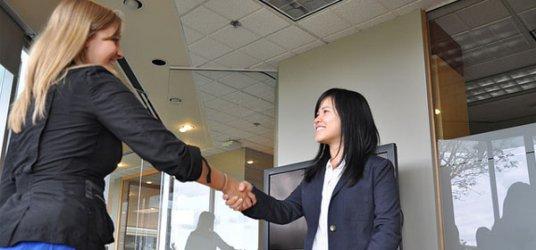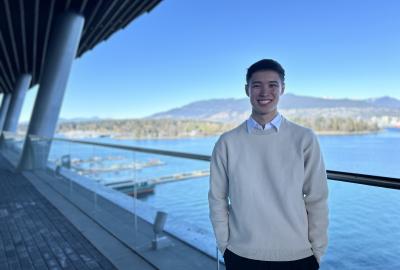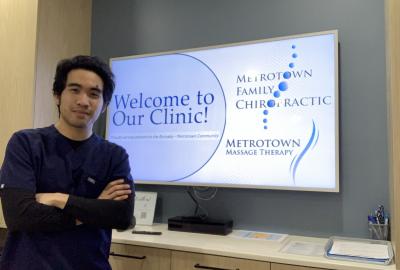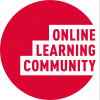
Being a recent graduate of from SFU, there was definitely nothing more important than finding a full-time job! Although I was hopeful and optimistic when starting my job search, I definitely encountered several obstacles throughout the process. However, I've also gained valuable experiences and tips that I would like to share with alumni who are currently job seeking, as well as future grads and co-op students.
1. Get As Much Experience as You Can Before Graduation
Part-Time Work
Although I did not participate in the Co-operative Education program, I worked as a research assistant for a marketing professor for two semesters, a marketing intern at a start-up sports marketing company and a marketing contractor for a Richmond-based technology/phone application company throughout my academic career.
These experiences allowed me to gain hands-on work experiences in verbal and written communication, brainstorming, research and data entry, which are essentially pertinent to all occupations. More importantly, I was able to build strong relationships with my employers to expand my professional networks and references for future job interviews. Additionally, I was able to build a solid resume which gave me a competitive edge over other candidates.
The sad truth is that without work-related experiences prior to graduation, it is definitely very difficult to successfully find a job within a short time frame. I know people who did not have any work-related experiences coming out of university or college and it took them a year to just find an entry level position.
If you already have work-related experiences from co-op, internships or volunteer work, then you shouldn't be as worried (although successful job searching sometimes does need some luck…). If you are still in school and don't have any work experience related to your field of study, there is still plenty of time for you to build your resume and references.
Volunteer Work
A great way to start building your resume is by volunteering at local non-profit organizations such as Volunteer Richmond Information Services and Volunteer Burnaby. By volunteering at these places, you are not only able to network with unique, warm-hearted and fun individuals, but also slowly building a strong resume and developing relationships with potential references and employers.
I personally started volunteering as an online researcher for the Volunteer Richmond Information Services, and I really enjoyed working in the non-profit sector and contributing to the community. I also enjoyed the fact that I was able to build my resume while interacting with friendly individuals. From my perspective, non-profit sector is definitely a great place for students to start!
Internships
In addition to volunteering, internships are also a great way for students to enhance their resume, expand their network and gain work-related experiences. As mentioned earlier, I have done a part-time internship at a sports marketing start-up company in Vancouver, which provided me with learning opportunities in researching, data entry and online marketing. These experiences turned out to be essential in my job searching process
Personally, I think the main advantage of internships is most companies that offer internships are not seeking for candidates with years of experience, but instead are looking for young, energetic and motivated students with a general knowledge of a particular field who are willing to learn. Also, internships can teach students things that aren't taught in class, such as dealing with employers and customers, developing technical skills and working in an office environment.
And for those who are about to graduate but don't have much experience, there's no need to worry! I basically built my entire resume in one year, from summer 2010 to August 2011, and began job searching in mid-September. If you can start building your resume by volunteering, taking on internships or contract positions, you will surely find it less difficult to land a job.
2. Expand Your List of Job Posting Websites
When I started my job search, I heavily relied on SFU MyExperience for job postings, which fortunately helped me to land an interview and gain some interview experiences. However, there are other sources for job postings to increase your chance at landing a job. For example, I began following Twitter accounts such as @BestJobsInVan, @VancouverJobs2, @canada_jobs, and @Jobsprout. Additionally, I began searching for jobs on sites like Craigslist Vancouver, Business Career Network, Indeed.ca, FreshGigs, workcircle, Media Job Search, Workopolis, Jobpostings.ca and Jobshark.ca. All these listings will help you gain better insights into the types of qualifications employers are looking for as well as how you can go about writing your resume and cover letter.
3. Expect the Unexpected
Job searching and interviews can be fairly adventurous but nerve-wrecking. During one of my interviews, I had to complete a mathematic/logic quiz to demonstrate my critical thinking abilities. And for another interview, I had to write a market overview of the hip implants industry for a research position at a medical device company. I had also come across an unprofessional employer where he requested me to work for him for a whole day without pay to see if he wanted to hire me and determine my salary. Surely you will come across stressful or out-of-the-ordinary situations, but try to remain calm and remember that this is just a part of the job searching process.
4. Tailor Your Resume and Cover Letter
By tailoring your resume and cover letter to a job posting, you not only highlight your strongest attributes relevant to the position, but also showing your interest in working for the company. I realized I had received far more interviews from applications where I tailored my resumes and cover letters for the positions, as opposed to sending out generic resumes and cover letters.
During my job hunting period, I applied for a company, twice. In my first attempt, I sent a very generic resume and cover letter which did not land me an interview. However, I applied for the same position a few weeks later with a customized resume and cover letter, and received a call back the next day.
5. Remain Persistent
For new graduates or co-op students who are job seeking, I would suggest submitting at least two job applications daily to not only increase your chance of landing an interview, but to also make job searching a habit so it doesn't seem too tiring or dreadful. Also, you never know when positions may open up. A friend of mine, who is also a SFU Alumni, applied for a managerial position and was told that he did not have adequate experience at the time. However, the company expanded a few months later and my friend was offered a manager assistant position. His example shows how you can land a job when you least expected it. As for myself, I landed a job with an Internet marketing start-up company on Craigslist Vancouver after 2 months of job searching.
All jobs seekers need to be persistent and apply for jobs on a daily basis, as well as being confident and optimistic as you may find the perfect job from your next application! If you ever find the job searching process stressful or exhausting, just remember that you will eventually find a job and that everyone was or is in the same situation as you at some point in their life. Some people may find a job immediately after graduation while others may not be so lucky. But everyone has their own path to explore, so just remain optimistic and eager and you will land your dream job in no time!















